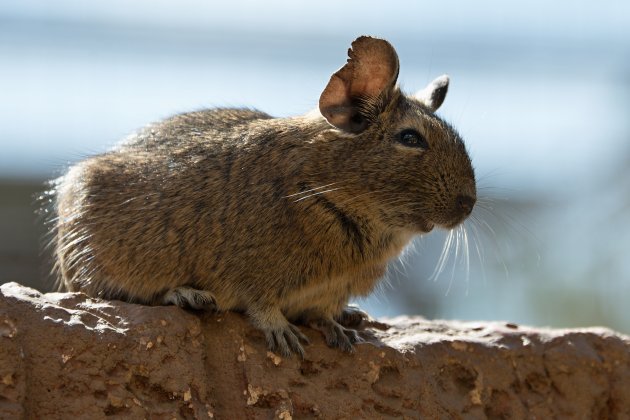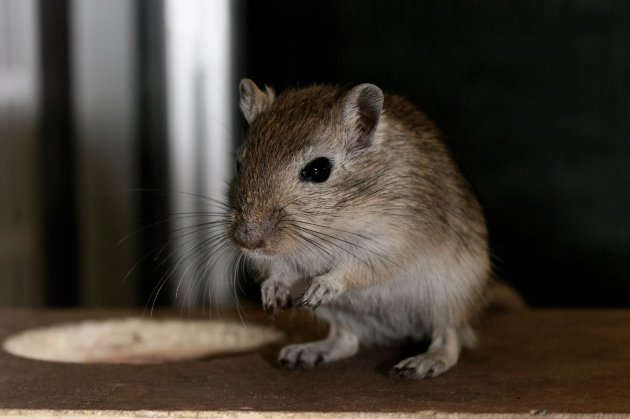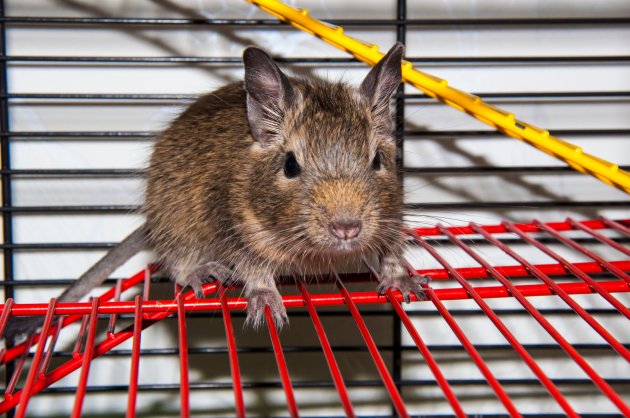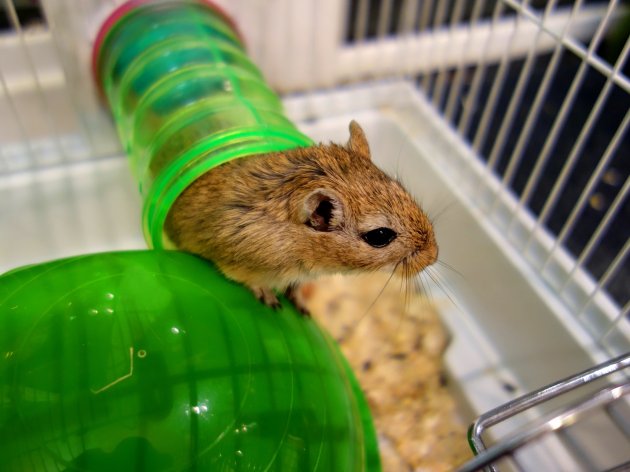Rodents make for an exciting pet. They are interactive and love the human touch. But many a time they are often confused with one another and this might lead to some mix up in their diet and health care. This might prove harmful for them in the long run.
In the present article, we will be focusing on two particular rodents that are often mistaken in lieu of their similar appearances. We will talk about the similarities, differences and the individual appeal of a Gerbil and a Degu.

What is the difference between a Degu and a Gerbil?
Size: The main difference between the two lies in their size. This is the first demarcation that you would get to see based on their appearance. Gerbils are smaller than Degus and require less space to live. Degus can be expected to grow up to three times the size of a Gerbil.
Lifespan: Another major difference between the two lies in their lifespans. A Gerbil can be expected to live for anywhere between 2 to 4 years of age. Degus have a much longer lifespan and can be expected to accompany you for 5 to 8 years.
AdvertisementActive hours: Gerbils are mainly nocturnal by nature. Therefore, you will notice them dozing through most parts of the day. Degus are better companions for the day as they sleep during the night. Both of them are rodents yet they have many differences in their physiology.
Diet: Even with belonging to the same category, they have a vast difference in their diets. On one hand, Gerbils can be fed almost anything in moderation; a Degu needs to have no sweets in its diet. The reason behind this is that they are naturally diabetic and thus they can develop serious health complications if a strict vigil over their diet is not maintained. Gerbils have no natural problems in their diet and can be fed small treats once in a while as long as they are being fed their share of pellets and rodent diet.
Health issues: The two of them differ in their health issues, too. They face different ailments. The Gerbils have skin diseases and neurological problems to trouble them. They face epilepsy and head tilting, while the Degus are more prone to mites and diabetes. Obesity, cataracts and diarrhoea are also issues that are commonly found in Degus. Thus, there is a need for strict control over their diet and for their strict need to exercise.

There are also many similarities between the two
Nest: When it comes to taking care of your pet rodent, these two are somewhat alike. Both of them requires a lot of space to live in. You have to make sure that you are giving them enough area to move around and be active. Also, you have to provide them with an exercise wheel without spokes or rings to help them keep up with their natural behaviour.
Same-sex pairs: It is best that you choose to keep same-sex pairs if you want to have more than one of them. They go along perfectly and there is no discord between the two of them. The trouble with keeping a pair of them from opposite genders is that they will start to breed. And then there will be a lot of babies. They are difficult to maintain and require a lot of constant work. From a health perspective too, you would be better off looking after a pair that is a same-sex couple.
AdvertisementHealthcare: Both of them need to have a visit to the vet as soon as they are brought home. A vet will ensure that they receive all their injections and are not carriers of infection in the home. After this initial process, they are required to have an annual visit to the clinic for checkups or as necessary.
Feeding: Both of them need water from a drip bottle. They cannot lap up water like other pets and thus it becomes necessary that they are fed in the form of drips.

Better suited pet for companionship?
Both of them are excellent pets. They are equally social and like to interact with their owner. However, having a Degu will mean that you need to provide a larger space for the pet. The two of them like to burrow, so most of the time you will find them under beds or on the floor trying to explore. Try to keep them away from stairs or any unobserved outing; though as long as you accompany them, everything should be fine.
You will have to train them to be petted from an early age. Rodents who are not used to human interaction or human touch are known to bite and scratch on being touched. But as long as they are properly trained, there should not be any problem playing with them.

Living with a pet
Gerbils are more energetic, and it is often fun to watch them play with their cage mate. Over time, they get used to the human touch and do not try to escape. You can even let them out of their cages on some occasions to let them play in the open. An exercise ball would be best; it has the added benefit of complimenting their exercise regimen. You can tape it to the ground and provide an enclosure for them to play in. This, coupled with the exercise wheel should provide enough exercise to keep them healthy.
Degus too follow the same routine. They love to move around and explore their surroundings. They are active diggers, too. In each of their cases, it is best to provide multilayered flooring in their nests. This is done so that they can dig and move around in there. It is best to imitate their natural surroundings as much as possible. Even pets bred in captivity need a semblance of home for their emotional well-being.
References and further reading:
- Sue Fox. (2004). Quick & Easy Gerbil Care. Retrieved from Amazon.com
- Susan Moore. (2014). Degus as Pets, a Complete Degu Care Guide. Retrieved from Amazon.com
- MSD Vet Manual. Gerbils
- raystede.org. Degus